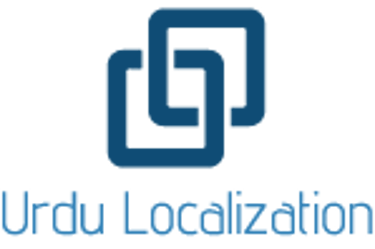
Why Holistic Urdu Localization Is the Key to Unlocking New Markets in 2025
3 min read

In today’s connected world, expanding globally is no longer just about translating words. To succeed, businesses must make their content, services, and experiences resonate deeply with local audiences. Urdu, spoken by over 230 million people worldwide, represents a vibrant and growing market. Companies that treat Urdu localization as a strategic priority rather than a simple translation task are far more likely to build trust, engagement, and loyalty in 2025 and beyond. The success of platforms like Reddit demonstrates this principle: by fully localizing their content for diverse markets, they were able to grow their user base and revenue substantially.
Holistic Urdu localization goes beyond converting text from English to Urdu. It involves adapting every aspect of content and experience to the cultural, linguistic, and visual expectations of the target audience. This means professional Urdu translators do far more than replace words. They capture the subtlety of idioms, understand regional variations, and tailor content so it feels natural and relevant to local users. While AI tools can provide speed, they cannot replicate the cultural intelligence and contextual awareness that skilled human translators offer. Certified Urdu translation services ensure accuracy, cultural sensitivity, and consistency, which are essential for building long-term trust with your audience.
Entering Urdu-speaking markets is not without its challenges. Urdu is a rich and intricate language, with variations in dialect and expression across regions. Literal translations can sound awkward or fail to convey the intended meaning, while cultural differences may lead to misinterpretation. Technical obstacles, such as adjusting apps, websites, or digital campaigns for right-to-left scripts, compound the complexity. Maintaining a consistent brand voice across languages adds another layer of difficulty. Without professional guidance, these factors can result in a fragmented, unpolished experience that undermines credibility.
The most effective approach combines the efficiency of AI with the expertise of human translators. Leading companies, including Reddit, leverage AI to accelerate repetitive tasks while relying on human insight for nuance, tone, and cultural appropriateness. For businesses targeting Urdu-speaking audiences, this hybrid approach ensures content is both scalable and authentic. Selecting an Urdu localization partner that integrates technology with professional translators allows for rapid, high-quality localization that preserves brand integrity.
Successful Urdu localization also requires a strategic approach from the start. Integrating localization early in product or content development prevents costly retrofits later. Testing localized content with real users helps identify gaps in comprehension, cultural alignment, and interface usability before a full launch. Working with certified and experienced Urdu translation services that understand your industry — whether legal, medical, or technical — ensures that specialized terminology is accurate and culturally appropriate. Moreover, localization must extend beyond text to visuals, user interfaces, and marketing campaigns. Colors, imagery, and design elements have cultural significance that can influence user perception and engagement, making thoughtful adaptation essential. Regular updates informed by user feedback and market trends keep content relevant, accurate, and engaging over time.
The economic and strategic benefits of holistic Urdu localization are significant. Properly localized content enhances user experience, builds trust, and fosters customer loyalty. Audiences are more likely to engage with content, complete purchases, and return to services that speak to them in their own language and reflect their cultural norms. Businesses that prioritize localization differentiate themselves from competitors who overlook cultural context, positioning themselves as authentic, attentive, and customer-centric. In markets where Urdu is prevalent, this approach can be the difference between growth and stagnation.
As 2025 unfolds, companies that approach Urdu localization strategically will gain a lasting advantage. It is no longer sufficient to rely on basic translation or generic messaging. Holistic localization — which integrates language, culture, visuals, and user experience — establishes credibility, deepens engagement, and strengthens brand loyalty. Professional Urdu translators, working alongside AI tools where appropriate, deliver the level of precision and cultural relevance necessary for meaningful connection with audiences. By embedding localization into core business strategies, companies ensure that they are not only reaching new markets but also building sustainable relationships that drive long-term growth.
Treating Urdu localization as a key business strategy rather than a mere operational task is essential for companies looking to expand their global footprint. By investing in professional Urdu translation services, cultural adaptation, and interface optimization, businesses can unlock new markets, increase engagement, and secure a competitive edge. In 2025, companies that embrace holistic Urdu localization will not only communicate effectively but also establish lasting trust, loyalty, and market relevance among millions of Urdu-speaking consumers worldwide.
